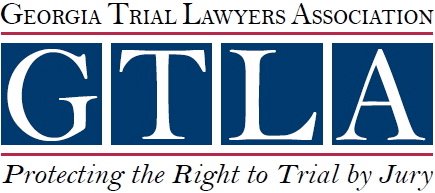When a loved one passes away due to the negligence of a healthcare provider, the emotional toll is immeasurable. Along with the grief comes the daunting task of understanding the legal landscape that surrounds such a tragic event. In Georgia, wrongful death claims related to medical malpractice are complex and require a thorough understanding of the law. This page delves into the intricacies of Georgia’s laws regarding wrongful death in medical malpractice incidents, shedding light on who can file a claim, the types of damages that may be awarded, and the legal time limits that apply. Through this exploration, families can better navigate the path to justice for their loved ones.




Understanding Wrongful Death in Medical Malpractice Cases in Georgia
Wrongful death in the context of medical malpractice occurs when a patient dies as a direct result of a healthcare provider’s negligence or failure to act according to the accepted standard of care. In Georgia, the law is clear that when such a death occurs, certain family members have the right to seek compensation for their loss. However, the process is far from straightforward. It involves proving that the healthcare provider’s actions or lack thereof directly led to the patient’s death, which can be an arduous task. The burden of proof lies with the plaintiff, and this requires the presentation of substantial evidence, including medical records, testimonies, and more.
The state of Georgia distinguishes wrongful death from medical malpractice by focusing on the fact that wrongful death is a claim brought on behalf of the deceased, while a medical malpractice claim could be filed by the patient if they had survived. When the patient does not survive, the wrongful death claim takes precedence, and the family must adhere to the legal requirements and procedures specific to wrongful death lawsuits.
Who Can File a Wrongful Death Claim in Georgia?
Georgia law specifies that only certain individuals are eligible to file a wrongful death claim following a medical malpractice incident. The right to file typically falls to the closest surviving family members, with a clear hierarchy established by the law. The surviving spouse is the first in line to file the claim. If there is no surviving spouse, the responsibility then passes to the children of the deceased. In the absence of both a spouse and children, the parents of the deceased are eligible to file. If no immediate family members are available, the personal representative of the deceased’s estate may file the claim on behalf of the next of kin.
This structure is important because it ensures that the wrongful death claim is brought forward by those most closely affected by the loss. However, it also means that those eligible to file must act within a certain timeframe, or they risk losing the right to seek compensation. Understanding who has the legal standing to file a wrongful death claim is critical, and consulting with a legal professional early in the process can help families determine the best course of action.
The Types of Damages Available in a Wrongful Death Claim
In Georgia, a wrongful death claim related to medical malpractice can result in different types of damages being awarded to the plaintiff. These damages are categorized into two main types: the full value of the life of the deceased and the financial losses incurred by the family as a result of the death. The full value of the life of the deceased includes both economic and non-economic factors. Economic factors might include lost wages and benefits that the deceased would have provided to the family if they had lived. Non-economic factors could involve the loss of companionship, care, and other intangible aspects of the deceased’s life.
Financial losses, on the other hand, cover expenses directly related to the death, such as medical bills, funeral costs, and other out-of-pocket expenses that the family had to bear. These damages are crucial in helping the surviving family members cope with the financial impact of their loss. However, calculating these damages requires a deep understanding of the law and often involves the input of financial and medical professionals to ensure that the family receives fair compensation.
Proving Medical Malpractice in a Wrongful Death Case
One of the most challenging aspects of a wrongful death claim in Georgia is proving that the death was indeed caused by medical malpractice. To succeed in such a claim, the plaintiff must establish several key elements. First, it must be proven that a doctor-patient relationship existed, meaning that the healthcare provider had a duty of care toward the deceased. Next, the plaintiff must show that the healthcare provider breached this duty by failing to provide the standard of care that a reasonably competent provider would have under similar circumstances.
Once a breach of duty has been established, it must then be proven that this breach directly caused the patient’s death. This is often the most difficult part of the case, as it requires showing a clear link between the provider’s actions and the fatal outcome. Finally, the plaintiff must demonstrate the damages that resulted from the death, whether economic or non-economic. Each of these elements must be supported by strong evidence, which is why legal representation is crucial in wrongful death cases. Without proper legal guidance, families may struggle to gather and present the necessary proof to hold the healthcare provider accountable.
The Statute of Limitations for Wrongful Death Claims in Georgia
In Georgia, there is a limited window of time during which a wrongful death claim can be filed. This timeframe is known as the statute of limitations, and it is critical that families are aware of these limits to avoid missing the opportunity to seek justice. For wrongful death cases related to medical malpractice, the statute of limitations is generally two years from the date of the patient’s death. This means that the lawsuit must be filed within this period, or the right to do so may be forfeited.
There are, however, certain exceptions to this rule that may extend the filing deadline. For instance, if the death was caused by the healthcare provider’s gross negligence or intentional misconduct, the statute of limitations may be extended. Additionally, if the cause of death was not immediately apparent and was discovered later, the clock may start ticking from the date of discovery rather than the date of death. Because these exceptions can be complex, it is advisable to consult with a legal professional as soon as possible to ensure that all deadlines are met.
Hiring a Personal Injury Attorney How Long Will a Personal Injury Case Take?Related Videos
Why Legal Representation is Essential in Wrongful Death Cases
Navigating the legal process in a wrongful death case is challenging, especially for grieving families. The complexities of proving medical malpractice, calculating damages, and adhering to strict deadlines can be overwhelming. This is why having legal representation is not just important, but essential. A knowledgeable legal team can guide families through each step of the process, ensuring that their rights are protected and that they receive the compensation they deserve.
Legal professionals have the experience to handle the intricate details of wrongful death cases, from gathering evidence to negotiating with insurance companies. They understand the nuances of Georgia’s wrongful death laws and can help families avoid common pitfalls that might jeopardize their case. Moreover, they can provide the emotional support that families need during such a difficult time, allowing them to focus on healing while their legal team handles the complexities of the case.
Representative Cases
Pursuing Justice for Your Loved One
Losing a loved one due to medical malpractice is a devastating experience, and the legal process that follows can add to the emotional burden. However, by understanding Georgia’s laws regarding wrongful death in medical malpractice incidents, families can take the necessary steps to seek justice. While no amount of compensation can bring back a lost loved one, holding the responsible parties accountable can provide a sense of closure and financial relief for those left behind.
At Princenthal, May & Wilson, LLC, we are committed to helping families navigate these challenging times with compassion and experience. Our legal team is dedicated to ensuring that your loved one’s memory is honored through a fair and just legal process. If you have lost a loved one due to medical malpractice in Georgia, contact us today to discuss your case and learn how we can assist you in pursuing the justice your family deserves.





